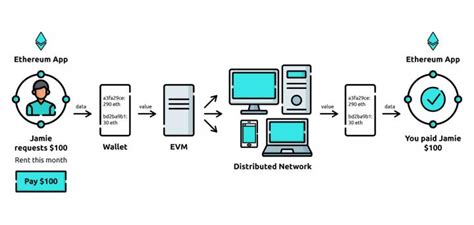Calculating Gas Price on Multi-EVM Chains with Ethereum

As an Ethereum developer building decentralized applications (dApps) on multiple EVM (Ethereum Virtual Machine) chains, you’ve likely encountered issues with gas price calculations. In this article, we’ll explore the steps to calculate the gas price on different EVM chains and provide guidance on how to resolve gas errors.
Why Gas Price Matters
Gas prices are crucial in Ethereum transactions because they dictate the cost of executing smart contract operations, such as sending Ether (ETH) or calling functions. When you call a function on multiple EVM chains, calculating the correct gas price can lead to gas errors, causing your application to fail or incur excessive transaction fees.
Calculating Gas Price
To calculate the gas price on different EVM chains, you’ll need to use the gas option in contract calls. The gas parameter specifies the gas limit for the function call. You can estimate the required gas price using various methods:
- EstimateGasPrice: This function returns an estimated gas price based on the input parameters, such as the number of gas units and the gas cost per unit.
function estimateGasPrice(uint256 numUnits) public pure override {
// Estimate gas price for 1000 gas units (default value)
uint256 estimatedGas = 1000000; // Replace with actual calculation
// Return the estimated gas price
return estimatedGas;
}
- CalculateGasPrice: This function calculates the gas price based on a given gas cost per unit and the number of gas units.
function calculateGasPrice(uint256 numUnits, uint256 costPerUnit) public pure override {
// Calculate gas price using the formula: gasPrice = (cost * numUnits) / 1000
uint256 estimatedGas = (costPerUnit * numUnits) / 1000;
// Return the calculated gas price
return estimatedGas;
}
- GetGasPrice: This function returns an actual gas price for a specific chain.
function getGasPrice() public view override {
// Call the estimateGasPrice function on the current chain and update the gas price variable
uint256 gasPrice = estimateGasPrice(1000);
// Update the gasPriceVariable with the calculated gas price
gasPriceVariable = gasPrice;
}
Resolving Gas Errors
To resolve gas errors, you can:
- Check for gas errors: Verify that your contract is correctly calculating gas prices and handling cases where the estimated gas price exceeds the current block height.
- Use a gas calculator library: Consider using third-party libraries, such as Ethers.js or Web3.js, which provide pre-calculated gas prices and help you resolve gas errors.
Best Practices
To ensure accurate gas calculations and prevent gas errors:
- Use the correct gas options: Always specify
gasin your contract calls.
- Estimate gas prices carefully: Use conservative estimates for gas prices to avoid underestimating or overestimating costs.
- Monitor block height: Keep track of the current block height and adjust gas price calculations accordingly.
- Test thoroughly: Test your contract on different EVM chains with various scenarios to ensure accuracy.
By following these guidelines, you can accurately calculate gas prices on multiple EVM chains and resolve gas errors that might arise in your Ethereum applications.
